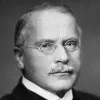We were born for cooperation, like feet, like hands, like eyelids, like the rows of upper and lower teeth. So to work against each other is contrary to nature; and resentment and rejection count as working against someone.
[γεγόναμεν γὰρ πρὸς συνεργίαν ὡς πόδες, ὡς χεῖρες, ὡς βλέφαρα, ὡς οἱ στοῖχοι τῶν ἄνω καὶ κάτω ὀδόντων. τὸ οὖν ἀντιπράσσειν ἀλλήλοις παρὰ φύσιν: ἀντιπρακτικὸν δὲ τὸ ἀγανακτεῖν καὶ ἀποστρέφεσθαι.]
Marcus Aurelius (AD 121-180) Roman emperor (161-180), Stoic philosopher
Meditations [To Himself; Τὰ εἰς ἑαυτόν], Book 2, ch. 1 (2.1) [tr. Gill (2013)]
(Source)
(Source (Greek)). Alternate translations:For we are all born to be fellow-workers, as the feet, the hands, and the eyelids; as the rows of the upper and under teeth: for such therefore to be in opposition, is against nature; and what is it to chafe at, and to be averse from, but to be in opposition?
[tr. Casaubon (1634), 1.15]For we are all made for mutual Assistance, no less than the Parts of the Body are for the Service of the whole; From whence it follows that Clashing and Opposition is perfectly Unnatural: Now such an unfriendly Disposition is imply'd in Resentment and Aversion.
[tr. Collier (1701)]We were formed by nature for mutual assistance, as the two feet, the hands, the eye¬ lids, the upper and lower rows of teeth. Opposition to each other is contrary to nature: All anger and aversion is an opposition.
[tr. Hutcheson/Moor (1742)]For we are all born for our mutual assistance; as the hands and feet, and every part of the human body, are for the service of the whole; to thwart and injure each other, therefore, is contrary to nature. Now injuries and hostilities are generally the consequence of hatred and resentment.
[tr. Graves (1792)]For we are made for co-operation, like feet, like hands, like eyelids, like the rows of the upper and lower teeth. To act against one another, then, is contrary to nature; and it is acting against one another to be vexed and to turn away.
[tr. Long (1862)]For we are all made for mutual assistance, as the feet, the hands, and the eyelids, as the rows of the upper and under teeth, from whence it follows that clashing and opposition is perfectly unnatural. Now such an unfriendly disposition is implied in resentment and aversion.
[tr. Collier/Zimmern (1887)]For we are made for co-operation, like the feet, the hands, the eyelids, the upper and the lower rows of teech. To thwart one another is contrary to nature; and one form of thwarting is resentment and estrangement.
[tr. Rendall (1898)]For we are made by nature for mutual assistance, like the feet, the hands, the eyelids, the upper and lower rows of teeth. It is against nature for men to oppose each other; and what else is anger and aversion?
[tr. Hutcheson/Chrystal (1902)]For we have come into being for co-operation, as have the feet, the hands, the eyelids, the rows of upper and lower teeth. Therefore to thwart one another is against Nature; and we do thwart one another by shewing resentment and aversion.
[tr. Haines (Loeb) (1916)]For we have come into the world to work together, like feet, like hands, like eyelids, like the rows of upper and lower teeth. To work against one another therefore is to oppose Nature, and to be vexed with another or to turn away from him is to tend to antagonism.
[tr. Farquharson (1944)]For he and I were born to work together, like a man’s two hands, feet, or eyelids, or like the upper and lower rows of his teeth. To obstruct each other is against Nature’s law -- and what is irritation or aversion but a form of obstruction?
[tr. Staniforth (1964)]For we have come into being to work together, like feet, hands, or eyelids, or the two rows of teeth in our upper and lower jaws. To work against one another is therefore contrary to nature; and to be angry with another and turn away form him is surely to work against him.
[tr. Hard (1997 ed.)]We were born to work together like feet, hands, and eyes, like the two rows of teeth, upper and lower. To obstruct each other is unnatural. To feel anger at someone, to turn your back on him: these are obstructions.
[tr. Hays (2003)]We were born for cooperation, like feet, like hands, like eyelids, like the rows of upper and lower teeth. So to work in opposition to one another is against nature: and anger or rejection is opposition.
[tr. Hammond (2006)]For we have been made for cooperation, just like the feet, the hands, the eyelids, and the upper and lower teeth. To hinder one another, then, is contrary to Nature, and this is exactly what happens when we are angry and turn away from each other.
[tr. Needleman/Piazza (2008)]For we have come into being to work together, like feet, hands, eyelids, or the two rows of teeth in our upper and lower jaws. To work against one another is therefore contrary to nature; and to be angry with another person and turn away from him is surely to work against him.
[tr. Hard (2011 ed.)]For both they and I need each other. To act against them would be to act against myself. And to become angry and turn away from them is also to act against them.
[tr. McNeill (2019)]
Quotations about:
rejection
Note not all quotations have been tagged, so Search may find additional quotes on this topic.
MESSENGER: I see, lady, the gentleman is not in your books.
BEATRICE: No. An he were, I would burn my study.
William Shakespeare (1564-1616) English dramatist and poet
Much Ado About Nothing, Act 1, sc. 1, l. 76ff (1.1.76-78) (1598)
(Source)
“If Mr. Darcy is neither by honour nor inclination confined to his cousin, why is not he to make another choice? And if I am that choice, why may not I accept him?”
“Because honour, decorum, prudence, nay, interest, forbid it. Yes, Miss Bennet, interest; for do not expect to be noticed by his family or friends, if you wilfully act against the inclinations of all. You will be censured, slighted, and despised, by everyone connected with him. Your alliance will be a disgrace; your name will never even be mentioned by any of us.”
“These are heavy misfortunes,” replied Elizabeth. “But the wife of Mr. Darcy must have such extraordinary sources of happiness necessarily attached to her situation, that she could, upon the whole, have no cause to repine.”Jane Austen (1775-1817) English author
Pride and Prejudice, ch. 56 [Elizabeth and Lady Catherine] (1813)
(Source)
Originality is a thing we constantly clamour for, and constantly quarrel with; as if, observes our author himself, any originality but our own could be expected to content us! In fact all strange thing are apt, without fault of theirs, to estrange us at first view, and unhappily scarcely anything is perfectly plain, but what is also perfectly common.
Thomas Carlyle (1795-1881) Scottish essayist and historian
“Jean Paul Friedrich Richter,” Edinburgh Review No. 91, Art. 7 (1827-06)
(Source)
A review of Heinrich Döring, Jean Paul Friedrich Richter's Life, with a Sketch of His Works (1826).
Loneliness does not come from having no people about one, but from being unable to communicate the things that seem important to oneself, or from holding certain views which others find inadmissible.
Carl Jung (1875-1961) Swiss psychologist
Memories, Dreams, Reflections [Erinnerungen, Träume, Gedanken], “Retrospect” (1962) [with Aniela Jaffé; tr. Winston (1963)]
(Source)
One need not go back two thousand years to the time when those who believed in the gospel of Jesus were thrown into the arena or hunted into dungeons to realize how little great beliefs or earnest believers are understood. The history of progress is written in the blood of men and women who have dared to espouse an unpopular cause, as, for instance, the black man’s right to his body, or woman’s right to her soul. If, then, from time immemorial, the New has met with opposition and condemnation, why should my beliefs be exempt from a crown of thorns?
Emma Goldman (1869-1940) Lithuanian-American anarchist, activist
“What I Believe,” New York World (19 Jul 1908)
(Source)
I love being with people. But I need a script, a role, something that will help me overcome my fears of rejection and shame. Most religions and belief systems provide a blueprint for some sort of community. And the religion’s leaders model a way of being. For example, in my book Choke, a character enacts his own death and resurrection every night — as does the narrator in Fight Club. Here’s Jesus, allowing himself to look terrible in front of his peers. That’s the biggest purpose of religious gathering: permission to look terrible in public.
Chuck Palahniuk (b. 1962) American novelist and freelance journalist
“Those burnt tongue moments–Chuck Palahniuk in interview”, Interview by Andrew Lawless, Three Monkeys (May 2005)
(Source)
Sticks and stones are hard on bones
Aimed with angry art.
Words can sting like anything
But silence breaks the heart.
The writer … when he’s rejected, that paper is rejected, in a sense, a sizable fragment of the writer is rejected as well. It’s a piece of himself that’s being turned down. And how often can this happen before suddenly you begin to question your own worth and your own value? And even worse, fundamentally, your own talent?
Rod Serling (1924-1975) American screenwriter, playwright, television producer, narrator
“Rod Serling: The Facts of Life,” Interview with Linda Brevelle (4 Mar 1975)
(Source)
To do exactly the opposite of something is also a form of imitation, namely an imitation of its opposite.
Georg C. Lichtenberg (1742-1799) German physicist, writer
Aphorisms, Notebook D, #96 [p. 604] (1773-75) [tr. Tester (2012)]
(Source)
Alternate translations:
- "To do just the opposite is also a form of imitation." [tr. Mautner and Hatfield]
- "To do the opposite of something is also a form of imitation, namely an imitation of its opposite." [tr. Hollingdale (1990)]
And when we speak we are afraid
our words will not be heard
nor welcome
but when we are silent
we are still afraid.
So it is better to speak
remembering
we were never meant to survive.
Thou canst not prevent the birds from flying above they head, but thou canst prevent their building their nests in thy hair.
Martin Luther (1483-1546) German priest, theologian, writer, religious reformer
Letter to Hieronymous Weller (1530)
(Source)
On temptation, attributed to "a wise oracle."
Talking of the danger of being mortified by rejection, when making approaches to the acquaintance of the great, I observed, “I am, however, generally for trying, ‘Nothing venture, nothing have.'” JOHNSON. “Very true, sir; but I have always been more afraid of failing, than hopeful of success.”
We cannot change anything unless we accept it. Condemnation does not liberate, it oppresses. I am the oppressor of the person I condemn, not his friend and fellow-sufferer. I do not in the least mean to say that we must never pass judgment in the case of persons whom we desire to help and improve. But if the doctor wishes to help a human being he must be able to accept him as he is. And he can do this in reality only when he has already seen and accepted himself as he is.
I hate, I despise your festivals, and I take no delight in your solemn assemblies. Even though you offer me your burnt offerings and grain offerings, I will not accept them, and the offerings of well-being of your fatted animals I will not look upon. Take away from me the noise of your songs; I will not listen to the melody of your harps. But let justice roll down like water and righteousness like an ever-flowing stream.
The Bible (The Old Testament) (14th - 2nd C BC) Judeo-Christian sacred scripture [Tanakh, Hebrew Bible], incl. the Apocrypha (Deuterocanonicals)
Amos 5:21-24 [NRSV (1989 ed.)]
(Source)
Alternate translations:I hate, I despise your feast days, and I will not smell in your solemn assemblies. Though ye offer me burnt offerings and your meat offerings, I will not accept them: neither will I regard the peace offerings of your fat beasts. Take thou away from me the noise of thy songs; for I will not hear the melody of thy viols. 24 But let judgment run down as waters, and righteousness as a mighty stream.
[KJV (1611)]I hate and despise your feasts, I take no pleasure in your solemn festivals. When you offer me holocausts, I reject your oblations, and refuse to look at your sacrifices of fattened cattle. Let me have no more of the din of your chanting, no more of your strumming on harps. But let justice flow like water, and integrity like an unfailing stream.
[JB (1966)]The Lord says, “I hate your religious festivals; I cannot stand them! When you bring me burnt offerings and grain offerings, I will not accept them; I will not accept the animals you have fattened to bring me as offerings. Stop your noisy songs; I do not want to listen to your harps. Instead, let justice flow like a stream, and righteousness like a river that never goes dry."
[GNT (1976)]I loathe, I spurn your festivals,
I am not appeased by your solemn assemblies.
If you offer Me burnt offerings -- or your grain offerings --
I will not accept them;
I will pay no heed
To your gifts of fatlings.
Spare Me the sound of your hymns,
And let Me not hear the music of your lutes.
But let justice well up like water,
Righteousness like an unfailing stream.
[RJPS (2006)]I hate, I despise your religious festivals; your assemblies are a stench to me. Even though you bring me burnt offerings and grain offerings, I will not accept them. Though you bring choice fellowship offerings, I will have no regard for them. Away with the noise of your songs! I will not listen to the music of your harps. But let justice roll on like a river, righteousness like a never-failing stream!
[NIV (2011 ed.)]
All the important human advances that we know of since historical times began have been due to individuals of whom the majority faced virulent public opposition.
Bertrand Russell (1872-1970) English mathematician and philosopher
Interview by Woodrow Wyatt, BBC TV (1959)
Collected in Bertrand Russell's BBC Interviews (1959) [UK] and Bertrand Russell Speaks His Mind (1960) [US]. Reprinted (abridged) in The Humanist (1982-11/12), and in Russell Society News, #37 (1983-02).
Thus says the Lord of hosts: Render true judgments, show kindness and mercy to one another; do not oppress the widow, the orphan, the alien, or the poor; and do not devise evil in your hearts against one another.
But they refused to listen and turned a stubborn shoulder and stopped their ears in order not to hear. They made their hearts adamant in order not to hear the law and the words that the Lord of hosts had sent by his spirit through the former prophets. Therefore great wrath came from the Lord of hosts.The Bible (The Old Testament) (14th - 2nd C BC) Judeo-Christian sacred scripture [Tanakh, Hebrew Bible], incl. the Apocrypha (Deuterocanonicals)
Zechariah 7: 9-12 [NRSV (2021 ed.)]
(Source)
Alternate translations:Thus speaketh the Lord of hosts, saying, Execute true judgment, and shew mercy and compassions every man to his brother:
And oppress not the widow, nor the fatherless, the stranger, nor the poor; and let none of you imagine evil against his brother in your heart.
But they refused to hearken, and pulled away the shoulder, and stopped their ears, that they should not hear.
Yea, they made their hearts as an adamant stone, lest they should hear the law, and the words which the Lord of hosts hath sent in his spirit by the former prophets: therefore came a great wrath from the Lord of hosts.
[KJV (1611)]Yahweh Sabaoth says this. He said, "Apply the law fairly, and practice kindness and compassion towards one another. Do not oppress the widow and the orphan, the settler and the poor man, and do not secretly plan evil against one another." But they would not pay attention; they turned a petulant shoulder; they stopped their ears rather than hear; they made their hearts adamant rather than listen to the teaching and the words that Yahweh Sabaoth had sent by his spirit through the prophets in the past. This aroused great anger on the part of of Yahweh Sabaoth overtook them.
[JB (1966)]“Long ago I gave these commands to my people: ‘You must see that justice is done, and must show kindness and mercy to one another. Do not oppress widows, orphans, foreigners who live among you, or anyone else in need. And do not plan ways of harming one another.’
“But my people stubbornly refused to listen. They closed their minds and made their hearts as hard as rock. Because they would not listen to the teaching which I sent through the prophets who lived long ago, I became very angry."
[GNT (1976)]'Yahweh Sabaoth says this. He said, "Apply the law fairly, and show faithful love and compassion towards one another.
Do not oppress the widow and the orphan, the foreigner and the poor, and do not secretly plan evil against one another."
But they would not listen; they turned a rebellious shoulder; they stopped their ears rather than hear;
they made their hearts adamant rather than listen to the teaching and the words that Yahweh Sabaoth had sent -- by his spirit -- through the prophets in the past; and consequently the fury of Yahweh Sabaoth overtook them.
[NJB (1985)]The Lord of heavenly forces proclaims:
Make just and faithful decisions; show kindness and compassion to each other! Don’t oppress the widow, the orphan, the stranger, and the poor; don’t plan evil against each other! But they refused to pay attention. They turned a cold shoulder and stopped listening.
They steeled their hearts against hearing the Instruction and the words that the Lord of heavenly forces sent by his spirit through the earlier prophets. As a result, the Lord of heavenly forces became enraged.
[CEB (2011)]Thus said GOD of Hosts: Execute true justice; deal loyally and compassionately with one another.
Do not defraud the widow, the orphan, the stranger, and the poor; and do not plot evil against one another. --
But they refused to pay heed. They presented a balky back and turned a deaf ear.
They hardened their hearts like adamant against heeding the instruction and admonition that GOD of Hosts sent to them by divine spirit through the earlier prophets; and a terrible wrath issued from GOD of Hosts.
[RJPS (2023 ed.)]
The desire of the esteem of others is as real a want of nature as hunger — and the neglect and contempt of the world as severe a pain as the gout or stone.
John Adams (1735-1826) American lawyer, Founding Father, statesman, US President (1797-1801)
Essay (1790), “Discourses on Davila: A Series of Papers on Political History,” No. 4, Gazette of the United States
(Source)
This is not a novel to be tossed aside lightly. It should be thrown with great force.
Dorothy Parker (1893-1967) American writer, poet, wit
(Attributed)
First attributed in this form in Robert E. Drennan, ed., The Algonquin Wits (1968). No actual source material has been found by Parker using this quip, and it appears to have been first attributed to her by Bennett Cerf in his "Try and Stop Me" syndicated column (1962-10-10).
The Quote Investigator site attributes the quote to a faked, humorous review blurb in the book To You I Tell It! by Bill Miller (1929). Further examination of the quotation's origins: Quote Origin: Not a Book To Be Lightly Thrown Aside. Should Be Thrown with Great Force – Quote Investigator®.






















